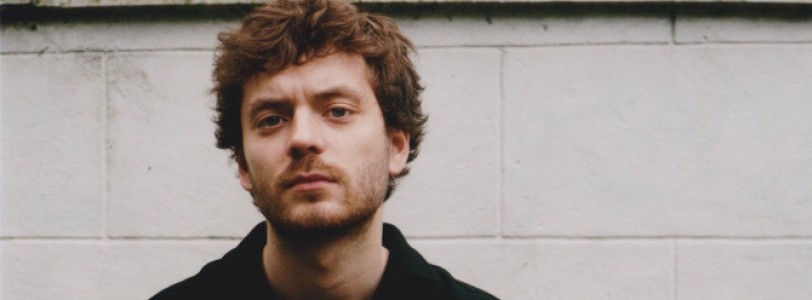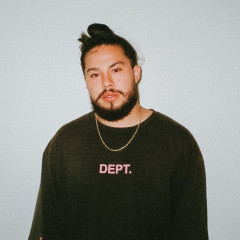Can you first introduce yourself to the reader?
I’m a composer and conductor from Manchester. I split my conducting practice fairly evenly between traditional repertoire and contemporary work, particularly that with an interdisciplinary bent. I’m one of the two curators behind London Contemporary Music Festival and also put on concerts/events as An assembly. As a composer I make music for orchestras and ensembles, plus performance installations which tend to happen in art galleries or more unusual spaces.
What does a typical day look like for you?
I don’t really have a typical day - for better or worse. Every day starts with coffee and pivots around Radio 4 once or twice. If I’m composing I really need about five hours a day for at least three days in a row to really make the most out of it. Often I’m in rehearsals, learning scores, doing research, plugging away at funding applications for the festival or my own work, dealing with mountains of emails, trying to run, trying to read, and cooking. If I’m ever feeling lazy I watch those Shia LaBeouf motivational videos or listen to Lil Pump.
How would you sum up the style of your art in three words?
Aviary - Map - Dumbbell
What has been the highlight of your career to date?
I think whatever ‘career’ I have links back to getting into the National Youth Orchestra in 2010 as a composer. I came to classical music and composing relatively late in my life around the age of 16, so to be around such incredible young musicians only a year later was pretty life changing. It was the first time I was around people who felt just as enthusiastic about music as I did, and it was also the first time anyone looked at my work critically and gave feedback. Through that I started having my work performed, recorded, and one thing led to another all from these experiences. I still work with loads of mates I met via the orchestra and recently even went to one of their weddings!
What’s been a particular challenge that you’ve managed to overcome?
I didn’t start reading or writing music until I was about 15, which in a world where people start learning their instruments between ages 3-6 felt incredibly late to me. Not attending a specialist music school and not playing in orchestras since I was a child felt like I was miles behind, but it gave me a really unusual route through music history - and crucially, contemporary music - which was ultimately invaluable to me.
What’s your process when creating a new piece?
If I’m making a piece of music I start with quite embarrassingly GCSE-looking mind maps just to spill out all my ideas, really interrogate them and link them up. I then put that to one side and come up with potential time lines to loosely plan out what could happen when in the piece and to play around with larger structural ideas. Then I put those to one side and try and get the sounds in my head out on paper and see what changes in the process. It’s mostly just stumbling forward from then, trying to balance doubting everything with sticking with the big dumb simple ideas (which are often the best).
Why did you apply for the Jerwood Creative Fellows?
I’m really interested in how huge, ambitious, interdisciplinary projects come together, from the beginning to their final delivery. It’s challenging for artists to see how to bring what they do to a bigger scale, and having this insight through the Fellowship is amazing. As someone who also works a lot with other artists to help realise their work, having a behind-the-scenes look at how an organisation like MIF deals with commissioning, funding, producing, promoting, documenting and organising work is really interesting.
What was your career path to entering the creative industry
A mixture of things.
I was lucky to win quite a big competition when I was 18, which opened some doors. I then let things calm down a bit whilst I studied, during which time I set up a concert series with my friends called ddmmyy where we programmed our own new music alongside work by more established composers that we loved. This was really crucial; I interviewed all of the featured artists in the series which was the greatest education I could have hoped for. This also connected me to the wider contemporary music and art world across the UK and abroad, through which I met some of the artists who I now regularly worked with and am lucky to call friends. Curating and conducting in this way, alongside composing, just grew and grew until where I am today. It’s all felt fairly organic, albeit catalysed with some unbelievably busy and stressful patches.
What advice would you give to someone who wanted to follow in your footsteps?
Don’t rely solely on anything that already exists; make your own opportunities and share them with others. Really fall in love with what you do and the culture you’re a part of, but also be its biggest critic; you’ve got to love parts of it and hate parts of it otherwise you’ll have nothing to contribute. Be optimistic and don’t be lazy. Learn to enjoy writing.
Who are the artists/creatives that you’re most inspired by, and who should we be looking out for?
What is a creative? Genuinely don’t understand this word.
I won’t embarrass the people I regularly work with and talk to on a daily basis, although they know who they are! Inspiration is a weird word I’ve never quite understood; so many of the artists I admire are not necessarily people whose ideas or career I want to imitate, but are more the kinds of people who are a constant source of fascination as they go/have gone from one thing to the next. I’d say John Cage, Klein, Mark Fell, Craig Green, Cassandra Miller, Chino Amobi, Kanye West, Apichatpong Weerasethakul, and Pierre Boulez are up there. It’s easy to forget how many conductors of the 19th and 20th centuries who are now iconic were at the forefront of the contemporary music of their time, an idea that is a great source of energy to me on a daily basis and one that has sadly been forgotten by most of the industry.
If I had to choose one from that list it would be Craig Green. He is the one.
And if you could send a message to the 16-year old you, what would you say?
Learn some languages and dress better.
What is one thing that gives you hope for the future?
I feel like the music world is becoming more aesthetically diverse and tentacular, reaching out to other ideas, art scenes, communities, contexts etc. which is amazing. At the moment though, I feel like this is all often being enacted in quite a misguided way by a lot of institutions who tend to lean towards simplifying problems, not doing enough research, or (most commonly) feigning a tokenistic interest in these kinds of things. Having said that, there’s a lot of drive from younger artists, performers, curators, critics and audiences to create this change, and I feel very privileged to be a part of that community.
Where can people find out more about you?









0 Comments